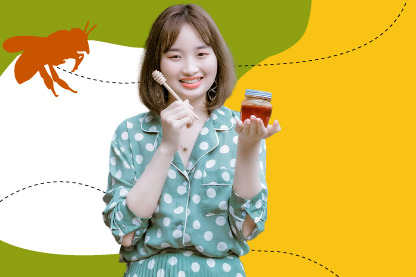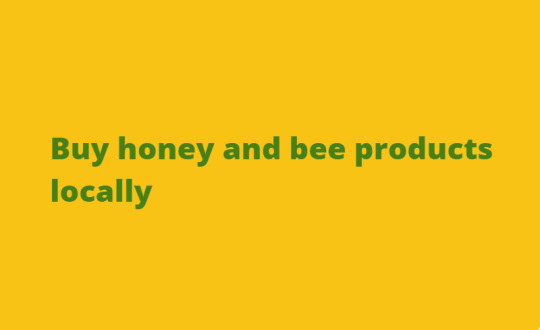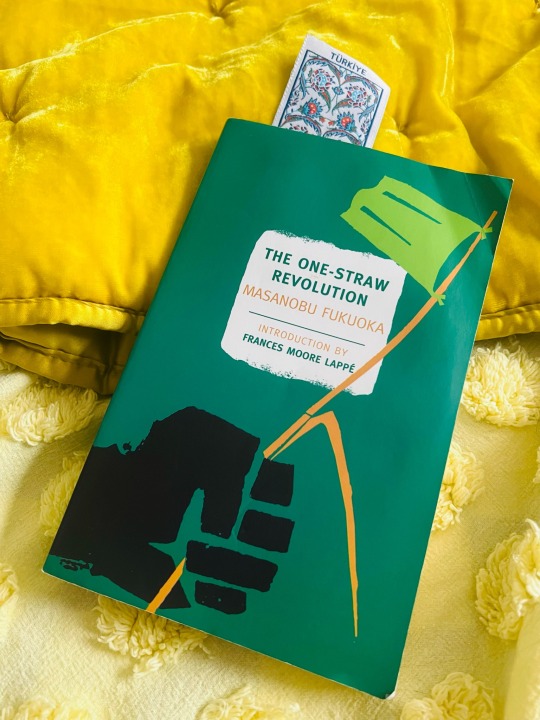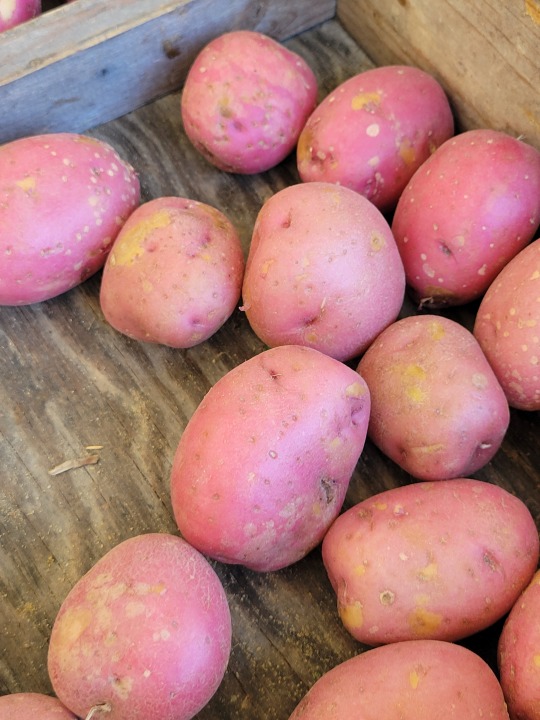#local agriculture
Explore tagged Tumblr posts
Text
Randall Randy Konsker - The Importance of Supporting Local Agriculture
Local agriculture has been a cornerstone of communities, offering fresh, nutritious food, bolstering local economies, and promoting sustainable farming practices. Randall Randy Konsker, an experienced agricultural consultant, fervently champions the importance of local agriculture. His insights highlight the myriad benefits that local farming provides to individuals, communities, and the environment. In this discussion, we delve into Konsker’s views on why supporting local agriculture is essential for a sustainable and prosperous future.
0 notes
Text
Buy-honey and bee products locally.

According to some people local honey will cure your allergies, and others are simply into locally grown products. Whether you want to reduce your carbon footprint or support local agriculture, buying honey that's made by local bees is not a bad idea. “Bee engaged with Youth”. World Bee Day 2024.

#local agriculture#carbon footprint#bee products#honey#honey production#bee engaged with youth#20 may#world bee day#consumers#engaging farmers
0 notes
Link
#Puerto Rico#Science and Environment#Community Empowerment#Corruption#environmental justice#Food Sovereignty#Landfill Crisis#Local Agriculture#Renewable Energy#sustainability#waste management
0 notes
Text
The 4 Big Meat Packers In America Are Making A Move To Bankrupt Small Farms In America Starting In August
“This is a way that they're gonna be trying to force us out”
“The big 4 packers are killing the American cattle industry right now. Projected by August, each cattle rancher that is selling their animal is gonna be making $30 less per 100 pounds on that market ready animal.
- The American cattle rancher makes about 30% of every dollar earned on that animal - With this gonna be set in place, this is gonna take us down into the twenties.
This is gonna be a real scary place for the American cattle rancher. If they can't make a profit or make a living off of what they're selling, their ranches are gonna be put up for sale.
This is a way that they're gonna be trying to force us out.
- And not only that, the corrupt thing is they're gonna be marking everything up $30 to every 100 pounds that they're making in return.
So with that being said, guys, we need to get back to buying local, supporting our local people. And as always, buy American and buy local.”
#No Farms - No Food#No Farmers - No Food - No Future#Food Security#Advocate for Agriculture#Support Local Farmers#Like Minded People#Stuff#Do Some Research#Make Tumblr ★ Great Again
821 notes
·
View notes
Text



I know not what about these creatures compels me so, but I couldn't take it anymore. I needed a mini Rollo. I can only hope that it doesn't multiply.
Congratulations @r-aindr0p your creations mad it past border security and into Australia.
#twst#the mini rollo invades Australia#I'm gonna have the Department of Agriculture Fisheries and Forestry come after me#if these things escape into the wild and start wrecking havoc on the local ecosystem#thank you r-aindr0p for your wonderful creations
280 notes
·
View notes
Text
there's a new carbon footprint calculator out adjusted for the nordics and its great and all (lists me as about half of the average norwegian) but it also pinpoints how hard it is to make these accurate because the "best tips for how YOU can improve!" are very much along the lines of "take the train!" no trains in my region. "stay at your vacation destinations longer and fly less!" i don't go on vacations. "eat less meat!" i buy 1 pack of salami per month. "buy fewer eggs!" i haven't bought an egg in several years. "take the bus to activities!" i don't have regular activities.
#i also just have#a teeny tiny bit of skepticism abt the climate effect of animal products when#all the animal products originate (and are largely processed) within an hour from me#from a system of animal agriculture that relies very heavily on utilizing otherwise non-farmable areas#aka places you can not access with a tractor#vs chickpeas shipped from - wherever i guess since they don't require clear labelling#not saying its necessarily better! but im not convinced its as skewed as it would appear#+ smallscale farming food security local economy cultural landscape and other reasons why one might#decide to make particular choices regarding meat or dairy consumption#(this is also why its so fucking hard for me to pick dog food)
35 notes
·
View notes
Text
something lovely for sustainable agriculture in honour of the gods, I think, would be learning how to make natural dyes, use eggshells for all sorts of purposes, sewing, etc. These arts are often forgotten, allowing for corporations to overtake our lives. Demeter's hands guide our own, so why not learn to make lovely dyes with her fine crops?
#dragonis.txt#paganism#witchcraft#witchblr#hellenic polytheism#helpol#pagan#hellenic polytheist#hellenic paganism#hellenism#hellenic pagan#if anyone would like a book about this send me an ask#I love dyes! I am thinking of releasing a collection of sustainable agriculture books to the community...#as your local farmer and demeter lover
103 notes
·
View notes
Text
i’m gonna be real i DO think we can community garden our way outta this one
#original post from @lesbianrey#but i do strongly disagree i think we can build community and sustainability and that’s the best and only option we have actually#something something building small connections and neighborhood organizing and deeper understanding of local agriculture and pollinators#idk guys there’s something here#op
16 notes
·
View notes
Note
It's been a while since i was last on this blog, besides the interesting Plasmoid race that's giving me ideas, what other unique races are there?
Also what is your opinion on potatoes? 🥔🎀✨️
You actually caught me in a moment where I haven't been paying the most attention, just went from near a month of 12 hour workdays to trying to refill the queue decimated in that time XD In general we've been doing the loser's bracket of Mordenkeinen's monsters and all the PC species. So we've had a good amount of the weirder monsters lately, like the star spawns and hags. I got a lot of entertainment out of the war over the demon lords when some main tournament bits posted out of turn (didn't have time to refresh queue with the right monsters).
Things are about the heat up as we launch into the main tournament though, and PF2e monsters in a few weeks! I'm especially excited about the PF2e stuff, and have spent my last 2 days prepping like 50 of them.
Oh, and potatoes are some of the finest things known to our species, the Inca should be celebrated worldwide for thier contribution to humanity! They have gotten me through the toughest times. Did you know they have all the carbs and nutrients needed for our survival except proteins, fatty acids, calcium, selenium, fibre and vitamins A, B12, E, K. Cycle in some beans occasionally to cover half of what remains, some vitamins (or better, some veggies) and milk (or leafy veggies like spinach or turnip greens) for a cheap and tasty way to stay perfectly healthy on little money. That + some occasional cheap meats or bones begged from the local butcher kept me alive for a while! Hell, Potatoes+Zucchini/Squash+cheap cuts of meat+leafy greens+beans are most of what I eat NOW
#I'm not vegetarian or vegan but I respect the hustle and meal plan so long as you're not a dick to me.#I avoid stuff with cruelty which is a bit easier since I live in a rural area. I can get stuff straight from local farmers.#and the deer population is out of control thanks to low predators. leading to hunting ordinances and pretty cheap venison.#but the POTATO. Potatoes. Corn. Rice. Wheat. Our greatest agricultural achievements as far as I'm concerned.#not tournament#answers
16 notes
·
View notes
Text
It’s rather lonely being the only one in your little freak corner of hyperfixations
#Cornish history specifically shipping trade/tin and copper mining/agriculture/language then and now#not really something I can get other folk involved with#save the odd shipwreck#but liiiiiike#I care I care so much#I once cried when I found some coal on a walk#I will and have taken people to the mat who called Kernowek ‘not a real language’#I care about the local history and the impact on a global scale#I!!! NEED!!! BUDDIES!!!!!!
8 notes
·
View notes
Text
Lestat being in charge of the tenant shepherds in the 1700s is like. I didn't realize what was framed as coping from within a cage was your heart's desire. My mistake.
Anyway him ending the series as vampire regent or w/e is just the Slagathor thing from scrubs right
#op#iwtv#auvergne's is a agriculture economy of the mostly meat & cheese variety so no i Don't mean 'tenant farmers'#modern au nicki has heard the most tantalizing local myths abt lestat solo cow-tipping--
4 notes
·
View notes
Text

⭐️Currently reading: The One-Straw Revolution by Masanobu Fukuoka ⭐️
‘Just playing or doing nothing at all, children are happy. A discriminating adult, on the other hand, decides what will make him happy, and when these conditions are met he feels satisfied.’
The synopsis calls it ‘Zen and the Art of Farming.’ This book is about his experience over 30 years of using the ‘do-nothing’ farming method. He lets his orchard and rice/barley fields grow wild without any pest controls or fertilizers. That’s the basis of it (kinda?) — but what makes this book amazing is that he goes deep into why it works for him. Explaining why he doesn’t have to use chemicals to treat weeds and pests. Into the full circle of life & how to actually grow ‘natural’ food. We always want bigger and better quality & focus on high yields and money. How disconnected we really are growing from nature in agriculture.
If you aren’t into agriculture or learning about the exact ‘whys’ of his experiences from growing rice, barley & citrus on his personal field —- skip to part 2 of the book. I honestly wouldn’t recommend skipping(it holds a lot of useful information), but after part 2 is where I really got interested.
It’s not only about farming though - it also incorporates our health, diet and how basic our knowledge is as humans. It makes you think.
Even this book being written in 1978 - it still holds up to today. We’ve had all this knowledge since then and we still continue to do industrial agriculture and live/eat the way we do. It’s eye opening, for sure.
I’m not completely finished yet - I have about 40 pages left - but that’s what I think so far ☺️ You should definitely give it a try.
#one straw revolution#sustainable agriculture#natural farming#masanobu fukuoka#agriculture#agriculture books#currently reading#sustainable gardening#grow organic#organic gardening#green manure#farming#eat locals#grow your own food#food not lawns#ecology#guerrilla gardening#indoor garden#container gardening#vegetable gardening#starting seeds#growing food#gardening blog#gardening tips#plant mom#plant life#homesteading#growing grains
18 notes
·
View notes
Text
The earliest written accounts of life on the coast, from the late 1700s, often refer to this area as being an “untamed wilderness.” The coast did not look like an English Garden, or a European farm, nor did the cultivation of these lands stand out with obviously unnatural or artificial features but rather was molded closely with the local geography. These authors did not recognize a form of cultivation that was unfamiliar to them. To their unaccustomed eyes, the coast was wild. It was not. A local example can be found at Mittlenatch Island. The small island looks rather unremarkable from the Campbell River shore; however, a closer inspection reveals just how intensely it was cultivated. Nearly all the “wild” flowers and shrubs are edible in some part, either their roots or their fruits. Some species, such as Camas, require regular harvesting and even controlled burning to increase its production.
44 notes
·
View notes
Text
Eva Vlaardingerbroek - Agenda 2030
#Eva Vlaardingerbroek#2030 Agenda#UN#No Farms - No Food#No Farmers - No Food - No Future#Food Security#Advocate for Agriculture#Support Local Farmers#Like Minded People#Stuff#Do Some Research#Save Our Farmland#Buy Local#Grow your own#Make Tumblr ★ Great Again
196 notes
·
View notes
Text
Florida banned local governments from providing increased oversight for workers exposed to high temperatures earlier this year, saying businesses and federal regulators alone could keep laborers safe.
But the Tampa Bay Times found far more workers have died from heat across the state than authorities even know.
The missing deaths bring recorded heat fatalities in Florida to at least 37 over the past decade — double the number federal regulators had tallied during the same period.
Employers are supposed to notify the U.S. Occupational Safety and Health Administration, which oversees worker safety, about employee deaths within hours. OSHA has fined six businesses in the state after discovering they didn’t follow the rule when workers died from heat.
The Times identified 19 additional heat-related deaths kept from the agency. The 19 deaths identified by the Times that are missing from OSHA’s tally included day laborers, roofers, construction workers and landscapers. Many died after working for lawn care companies on private homes, some just hundreds of feet from air conditioning and running water.
Taken together, the Times found that Florida companies have failed to report the vast majority of heat fatalities as required.
Workers died after hot days spent roofing houses, packing boxes and harvesting fruit. Many were young. They’d just started jobs, unaccustomed to Florida’s stifling heat and humidity.
It was the work they could get after being released from prison. After not finishing high school. After leaving families abroad to build a different life for the next generation.
The vast majority were people of color. At least half were immigrants.
Some said they believed employees died of preexisting medical conditions. Others said workers’ compensation insurance told them the deaths weren’t work-related. One said the laborer who died technically wasn’t an employee.
Experts also said that companies employing undocumented workers might be less willing to report fatalities for fear it would draw attention to their operations. One of every five deaths that regulators knew nothing about was an undocumented laborer, the Times found.
Extreme heat is more deadly than any other natural disaster plaguing the U.S., killing more people annually than hurricanes, tornadoes and floods combined, according to the National Weather Service. Climate change is only increasing the threat.
#labor#workplace safety#climate change#there is a draft heat standard but it will not go through under the trump admin & as u can see: enforcement would be a problem anyway#OSHA can cite under the general duty clause but it's extremely difficult to monitor workplaces where it's most needed#for heat that is construction & agriculture#OSHA fines are obscenely low [they are capped] and the org is so underfunded that the oversight is minimal#florida meanwhile as this article notes has made it illegal for local governments to enact any heat standards#so there won't be help from local authorities. the only path forward is aggressive worker organizing#& to quote w.e.b. dubois: as the south goes so goes the nation!
4 notes
·
View notes
Text
LOCAL FARMS >>>>> pt. 2


Guys they sell food. And it's affordable. And sustainable. And the money they get from you buying their food sustains them and their business and allows them to keep growing and selling affordable food and create a small community that appreciates local sustainable farming and their wonderful food.
BUY FROM THEM RAGAHSGAJG
7 notes
·
View notes